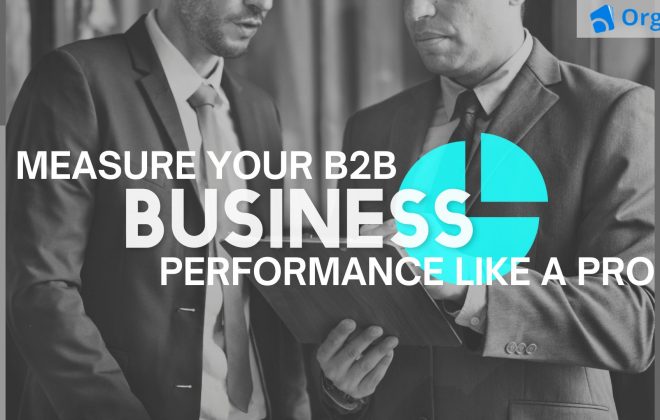Estimate, Bid, Quote, or Proposal: Which One is Right for You?
They all sound similar. But they differ from each other depending on what your customer is asking for.
How do you decide which one is right for your business?
Let’s say,
You want to buy a car. You go to the showroom, look at various cars, and finally make a choice. Now you ask the salesperson to give you the cost of the car. The salesperson will take a piece of paper and write down the base price, taxes, insurance, added features, etc.
When he breaks down the price for each component, he gives you an estimation of the total on-road cost of the car for you. It may increase or decrease based on taxes levied on your
Now, if you’re buying a custom-made car, you’ll need to get a proposal from the manufacturer. The proposal will outline the specific features and options you want and the cost and delivery timeline.
A bid is like a quote but typically used in a more competitive setting.
Now, let’s say, you’re buying a car at auction. You’ve inspected the car and are interested in buying it, but you must know how much it’s worth.
You start by placing a low bid. If no one else bids higher, you win the car at your bid price. However, if someone else places a higher bid, you must decide whether to increase your bid or walk away.
So, these businesses are the first communication documents with your customers or partners. These terms are unimportant, but what your customer expects from the estimate or a quote is important.
Estimate, bid, quote, and proposal are all terms used in business to describe the process of providing a price for a service or product.
What is an Estimate?
An estimate is a rough cost of a service or product. It’s typically used when the scope of work is unclear or there are a lot of inconsistencies. Estimates give a general idea of how much a project or service will cost.
When to give an estimate?
- When the scope of work is undefined, or many unknown factors exist.
Suppose you hire a contractor to renovate your kitchen; the contractor provides you with an estimate and initial plans for timeframes and costs based on their experience with similar projects.
However, the final cost may vary depending on the materials used and the unexpected challenges like plumbing issues, mold or water damage, permit fees etc that arise during the project implementation.
- When you want to obtain quotes from multiple vendors.
For example, if you are looking for a new IT provider, you may get estimates from several companies before deciding to continue.
- When your customer needs an idea of the project.
For example, if you are considering building a new website, you may get an estimate from a web designer to get a general idea of the cost before proceeding with your website.
What is a Quote?
A quote is a more exact pricing document for a service or product than an estimate. Quotes are typically provided after the scope of work has been well-defined and the seller understands the customer’s needs.
While quotes are not legally binding, they are generally expected to be accurate and complete. The timeframe may or may not be defined in a quote as per the business.
So, when do you need to go with the quote:
- When the scope of work is well-defined.
For example, if you are buying a new computer from a retailer and have specific expectations, the retailer can provide you with a quote for the exact computer you want to buy.
- When the seller has a good understanding of the customer’s needs.
Suppose you are hiring a marketing agency to develop a new marketing campaign; the agency will need to meet with you to understand your goals and objectives so that they can provide you with a quote.
- When the customer needs a detailed price to make a decision.
For example, if you are buying a new fleet of vehicles for your business, you will need quotes from multiple dealers before making a decision.
What is a Bid?
A formal document that offers to complete a project at a specified price and within a defined timeframe, used in competitive and secure situations. They are legally binding, so it is important to ensure they are accurate and complete for the goal compared to quotation vs proposal.
Some situations where a Bid can be used
- When you are competing for a project
For example, if you are a contractor bidding on a government contract, you must submit a bid outlining your price, timeline, and qualifications.
- When you are working with a customer with a specific budget
For example, if a customer has a budget of $10,000 for their new website, you must submit a bid that meets that budget.
- When you are working with a customer with a specific deadline
For example, if a customer needs a new website within two months, you must submit a bid that outlines a timeline and meets the deadline according to your customer’s expectations.
What is a Proposal?
A proposal is a formal document that outlines the terms of a service or product. It is typically used for projects that involve a long-term commitment or partnership between the buyer and seller.
Unlike quotes and bids, a proposal offers a comprehensive overview, including detailed work descriptions, timelines, and pricing.
Likely situations where a proposal is used
- When the project is complex
For example, if you are hiring a company to develop a new software application, you must receive a proposal outlining the scope of work, timeline, and price; after that, you think about further processes to continue.
- When the project involves a long-term partnership
For example, if you hire a social marketing to manage your social media accounts for a year, you will need to receive a proposal outlining the scope of work, timeline, and price.
- When you need to convince a customer to do business with you
For example, if you are a consultant trying to make a new customer, you must submit a proposal outlining your qualifications, experience, and proposed approach.
Let’s go for a quick comparison:
Best Practises When Choosing Estimate, Bid, Quote, or Proposal
- An estimate may be sufficient if you provide a price for a simple service or product to a friend or family member. However, if you provide a price for a complex project to a potential customer, you should use a bid or proposal.
- If the scope of work needs to be defined, start with an estimate. Once you understand the customer’s needs, you can provide a more detailed quote or proposal.
- If you are in a competitive situation, you must go for a bid. However, if you are the only provider of the service or product, you can provide a quote or proposal.
Before sending an estimate, bid, quote, or proposal to a customer:
- Make sure you understand the customer’s needs.
Meet with the customer or discuss their needs over the phone to understand what they want. Ask questions to clarify their requirements and identify potential challenges they may face.
- Define the scope of work.
You can start defining the work scope once you understand the customer’s needs well. This should include a detailed description of the services or products you will provide and the timeline and budget.
- Get all the necessary information.
To provide an estimate, bid, quote, or proposal, you must need all the necessary information from the customer. This may include things like the project’s size, the work’s complexity, and the materials and resources that will be needed.
- Calculate your costs.
You can start calculating your costs once you get all the necessary information. This should include the cost of materials, labor, and overhead.
- Add a profit margin.
Once you have calculated your costs, you must add a profit margin. This will ensure that you are making money on the project.
- Review your estimate, bid, quote, or proposal carefully.
Review it carefully before you send it to the customer to ensure it is accurate and complete.
Best Tools to Manage Bids, Quotes, or Proposals
Here are some specific tools to manage these terms as well:
- Choose CRMs with quote management: You can use a CRM with quote management to create and send quotes to your customers and prospects. You can also track the status of your quotes and see when they have been viewed or accepted.
- Bid dashboards: You can also use a bid dashboard to track your pipeline and real-time performance. This information can help you identify improvement areas, such as your bid win rate or the average time to close a deal.
- CRMs with proposal management: You can use a CRM with proposal management to create, track, and send proposals to your customers and prospects. You can also track the status of your proposals and see when they have been viewed or signed.
Winding Up,
Choosing the right document is important, but it’s even more important to communicate the relevant details to your customer. For example, if a customer asks for a general ballpark number, it is unnecessary to submit a detailed proposal. However, if a customer asks for a bid on a large commercial project, it is important to submit a comprehensive and competitive bid.
- Estimations are suitable when the scope is undefined, and rough estimations are needed by the customer as compared to quotation vs proposal.
- Quotes can be used for well-defined work and when you need to give pre-defined prices
- Bids are relevant in a competitive marketplace.
- Proposals are best as compared to quotation vs proposal suited for partnerships that include complex or long-term projects.
FAQs
Yes, Estimates and Quotes are especially used in B2B business. Since the volume and cost of projects and jobs in B2B companies are high, it is essential to have an estimation or quote management system in place.
Communicate any changes promptly and transparently to maintain trust with the customers.
In such cases, it’s best to provide both, clearly outlining the differences and benefits of each.
Focus on highlighting your unique approach, expertise, and the value you bring to the table.
It depends on the industry and customers’ expectations. Assess the situation and provide what aligns best with their needs.









